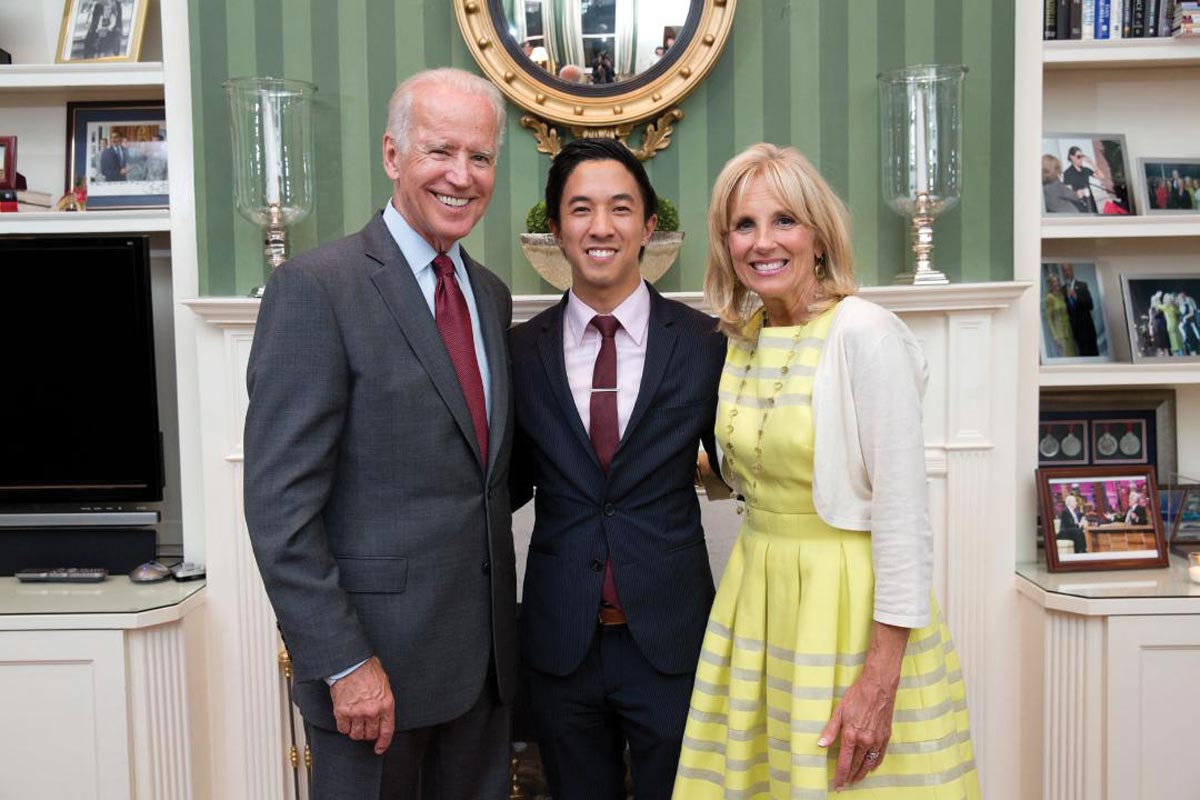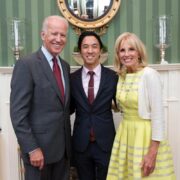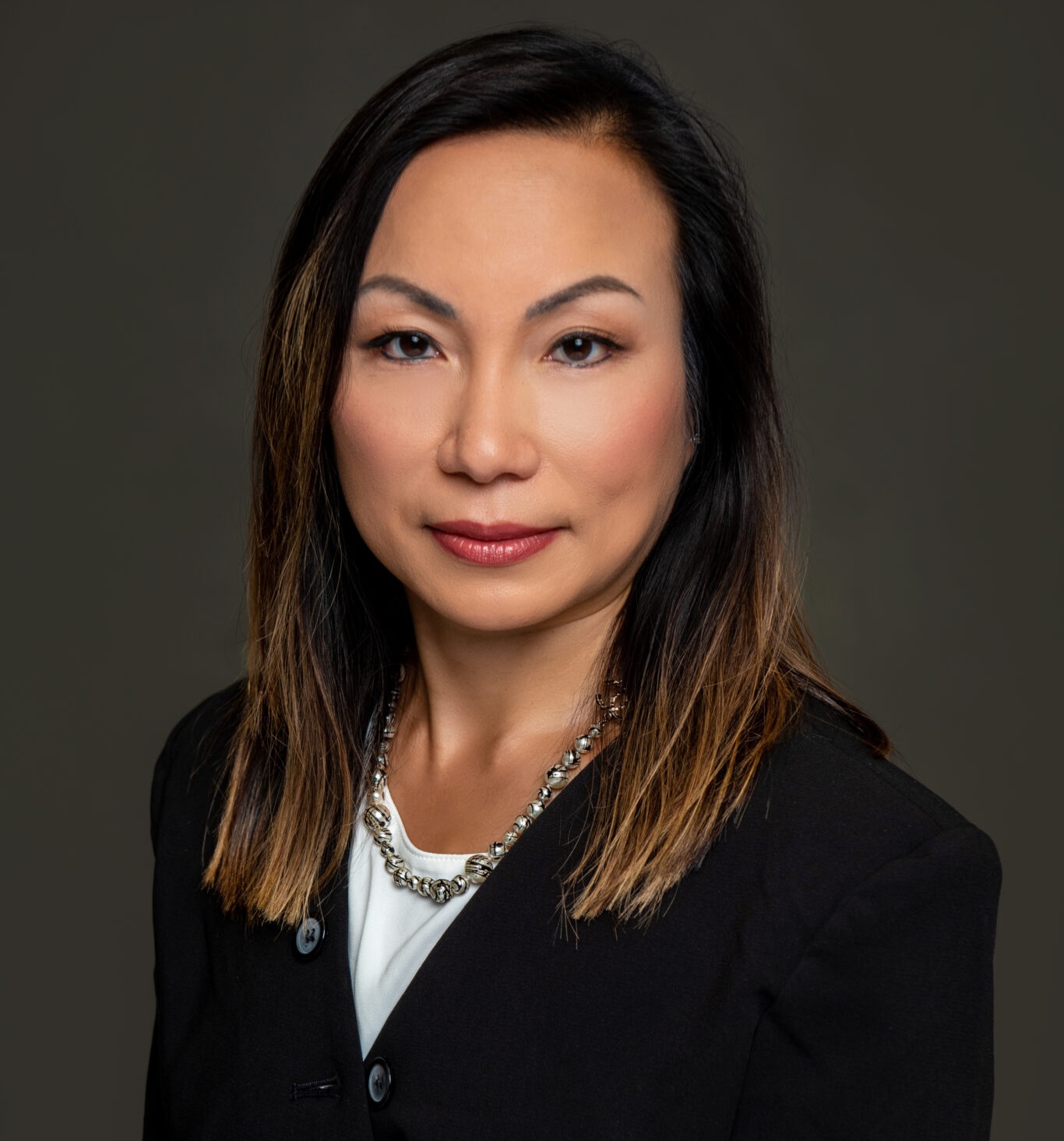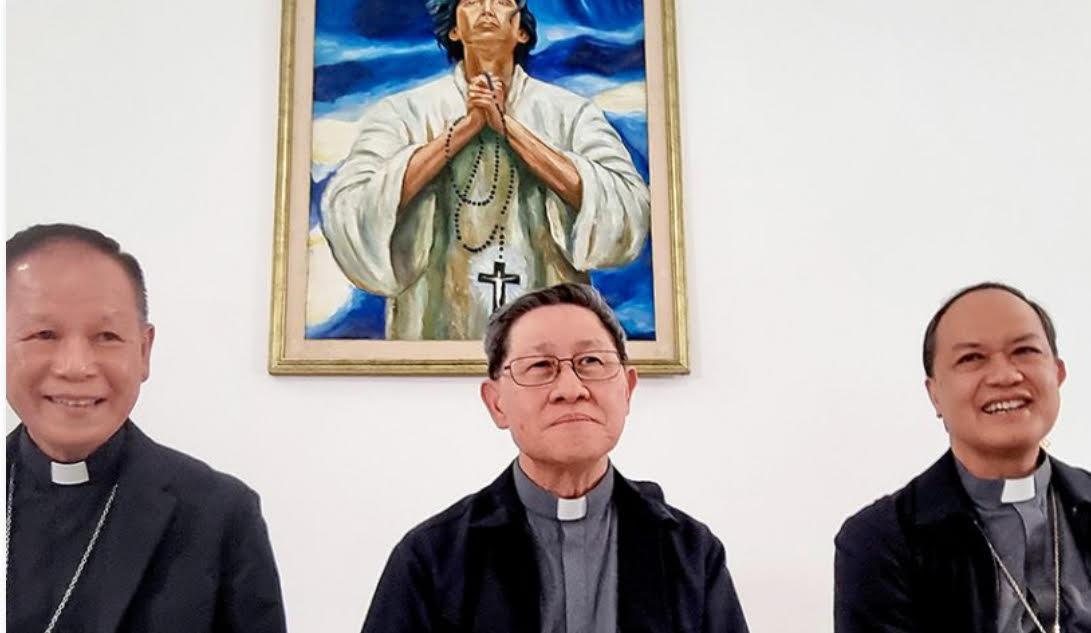
As protests over police brutality and the killings of Black Americans by police officers grew in cities across the United States, President Donald Trump drew criticism for having U.S. Park Police and National Guard troops clear a path using tear gas, so he could take a photo in front of the St. John’s Episcopal Church in Washington, D.C.
Jason Tengco, coalitions chief of staff for the Biden campaign, had just finished his graduate degree in May from the University of California, Berkeley, and was on a road trip with his fiancé when he learned of the photo-op incident.
“I already knew that we couldn’t afford another four years under the current president, but that was the day that I told myself that I wanted to jump back in and get involved in the campaign myself,” Tengco told the Asian Journal.
Having lived in the capital for almost eight years, Tengco recalled the countless times he walked by Lafayette Park where the protestors had been gathering, and realized that he wanted to be fully invested in making sure former Vice President Joe Biden would be elected as the next president.
Despite already having a job offer lined up in California’s Bay Area, Tengco emailed out his resume to people he knew on Biden’s campaign, and from that, came his role as chief of staff of the coalitions team.
“Joe Biden really understands that we cannot take any community for granted, that we all need a seat at the table, that our issues matter, that our concerns matter, and that we need this coalition of voters not only to win in November, but also when we do win, this will be the governing body to help Joe Biden when he’s in the White House to really push his agenda,” said Tengco.
The coalitions department was announced in May and signaled the Biden campaign’s efforts to ensure that the diversity of the campaign mirrored that of the country.
“We’re really proud of the team that we’ve assembled,” said Tengco, adding that it’s one of the most diverse coalition of leaders working on issues ranging from building the country back up after the coronavirus pandemic to climate change and immigration.
Involved are nearly 30 people in its national staff representing nearly 20 coalitions focused on different sectors and minority groups like AAPIs, African Americans, Latinos, the LGBTQ community, seniors, veteran and military families, young Americans, and students among many others.
“I almost feel like I’m sort of a connector in a lot of ways, just making sure the trains are running on time,” Tengco said of his role.
With campaigning largely going online due to the pandemic, Tengco said the campaign has built a robust digital organizing program that includes efforts like phone banking in different native languages, especially in key states.
“You might not always have someone on the other end of the line who understands or speaks English very well, so in order to reach voters and to talk about the issues that Joe Biden is trying to really advocate for, we have to make sure that we speak in their language,” said Tengco.
“We are so lucky to be able to have really strong leaders with Filipino Americans for Biden who have been helping us organize digitally and reaching voters, knowing that we’re not doing as much in person,” he added.
Another big part of the campaign has been making use of surrogates who are typically celebrities passionate about Biden’s candidacy and who speak on behalf of the campaign.
Asian American Olympic figure skater Michelle Kwan, for example, joined the Biden campaign as a surrogate after also being a part of Hillary Clinton’s campaign in 2016.
Before that, she served as public diplomacy ambassador under former Secretary of State Condoleezza Rice, and continued as an envoy under the Obama administration where she worked with Biden and Clinton.
“It’s been such a pleasure. I absolutely love the team that the campaign has built,” said Tengco. “We have great teamwork and really that passion to get things done.”
Prior to becoming the coalitions chief of staff, Tengco served as the National Asian American and Pacific Islander Outreach Director during Clinton’s 2016 campaign, and as deputy director of the White House Initiative on AAPIs during the Obama administration.
He also recently served as Senior Advisor to the National Federation of Filipino American Associations (NaFFAA), the largest national affiliation to promote the welfare of the approximately four million Filipinos throughout the U.S, after serving as its executive director.
Tengco’s interest in political activism sparked while studying at the University of California, Los Angeles, where he obtained his B.A. in political science.
Growing up, discussions on identity and culture wasn’t something his parents engaged in — an experience not uncommon among second-generation Fil-Ams whose parents encouraged them to focus more on studies.
It was through meeting fellow second-generation Fil-Am students who were going through the same struggle of learning about their identity and roots that later fueled his passion for civic engagement, especially in the Fil-Am community.
“I’ll always remember this quote that I learned in college: No history, No self. Know history, know self,” said Tengco.
On supporting Biden
When it comes to supporting Biden, Tengco said Biden’s track record is telling of his commitment to the Fil-Am community.
Biden has publicly courted the Fil-Am community during his campaign, most recently sending out a tweet for Filipino American History Month in which he praised the community for its “immense contributions” to the U.S. and for their service in the military or as frontline workers.
One major accomplishment attributed to the Obama-Biden administration, Tengco said, has been the Deferred Action for Childhood Arrivals (DACA) program which protects immigrants brought to the U.S. illegally as children from deportation, and gives them work authorization.
Tengco added that Fil-Am representation in political leadership was another area Biden helped amplify in his career.
Some Fil-Am leaders under the Obama-Biden administration include Nani Coloretti, who as deputy secretary of Housing and Urban Development, was the highest-ranking Fil-Am in the administration; and Judge Lorna Schofield who became the first Fil-Am federal judge.
“Vice President Biden wants to continue to build off of that significant progress and make sure that we have diverse, talented individuals in his administration,” said Tengco.
There was also the fact that the Obama-Biden administration made an effort to recognize the contributions of Filipino World War II Veterans, something that Tengco was personally invested in.
“That issue for me as a college student actually was the reason why I got into student organizing. It was the reason why I got into politics — that issue opened my eyes to social justice,” said Tengco.
On getting out to vote
Tengco has long been an active advocate for voter empowerment, especially in the Fil-Am community.
In an op-ed he wrote for the Asian Journal in July 2019, he highlighted that only 50% of eligible Fil-Am voters exercised their right to vote in the 2016 election.
“The AAPI community is extremely diverse,” said Tengco. “We represent over 50 ethnicities. We speak over a hundred different languages and we are not monolithic. We are different across communities, and this campaign gets that.”
In his op-ed, he urged Fil-Ams to pay close attention to what the candidates were saying on issues like immigration, which affects Fil-Ams.
He wrote that more than 300,000 Filipinos in the Philippines were hoping to be reunited with relatives in the U.S. Another estimated 310,000 Filipinos in the U.S. are undocumented, including 5,000 who benefited from the DACA program.
With Election Day coming soon on Tuesday, November 3, Tengco joins others in encouraging people to exercise their right to vote.
“It’s so important to be able to elect a president who not only knows what he’s doing, but also knows how to make sure that we can leverage the resources of the federal government to really protect our communities,” said Tengco.
In support of Biden, Tengco added: “He has this real commitment to making sure that workers have the resources, the essential services, and the protective equipment that they need. That is something that impacts Filipino Americans — Filipino nurses and health care workers and our own Kababayan.” (Rae Ann Varona/AJPress)







Thank you for all you did and are doing. Outstanding! Long Live Fil-Am!